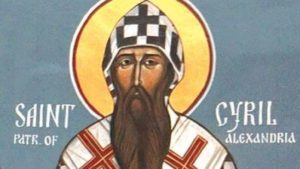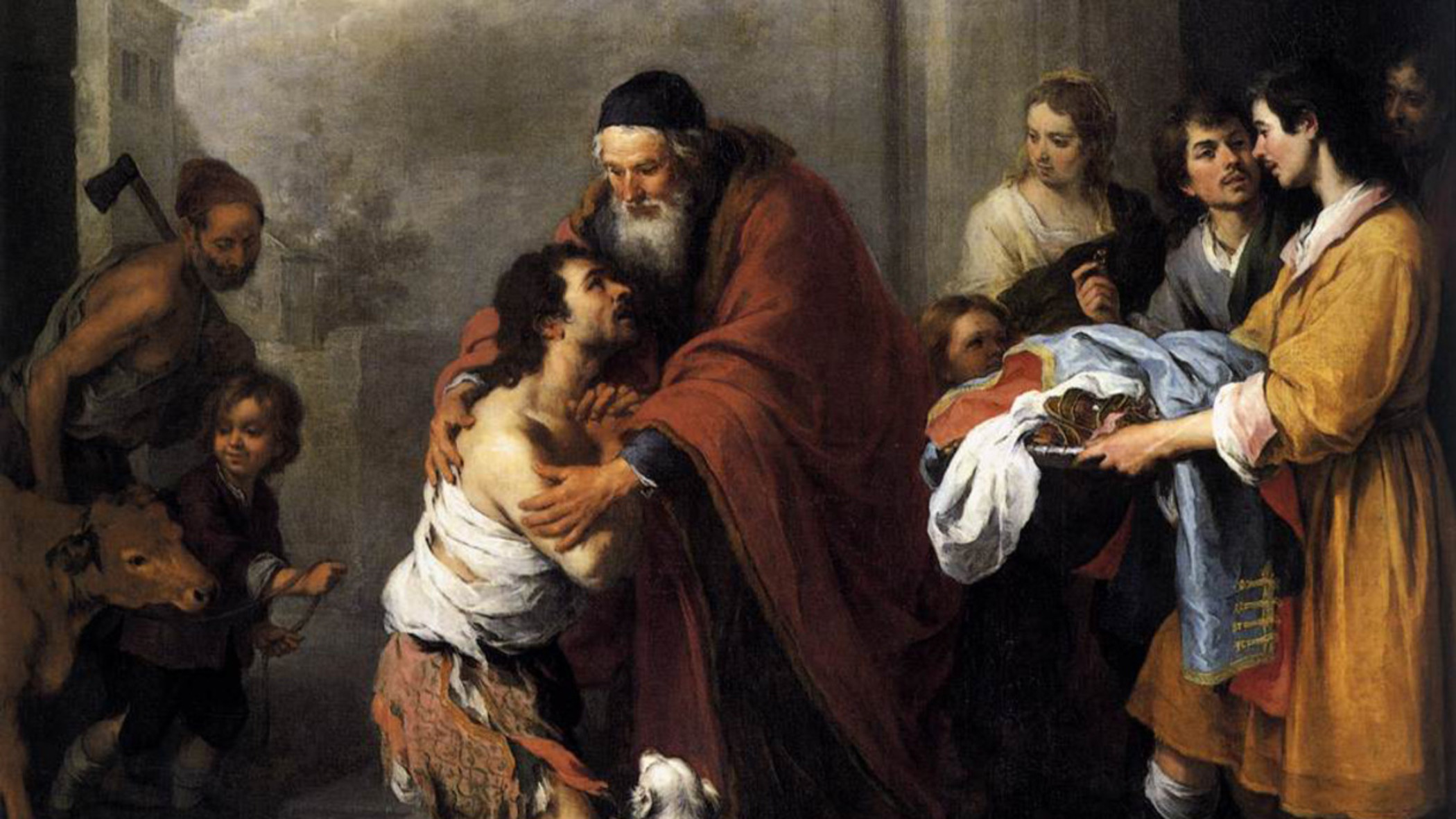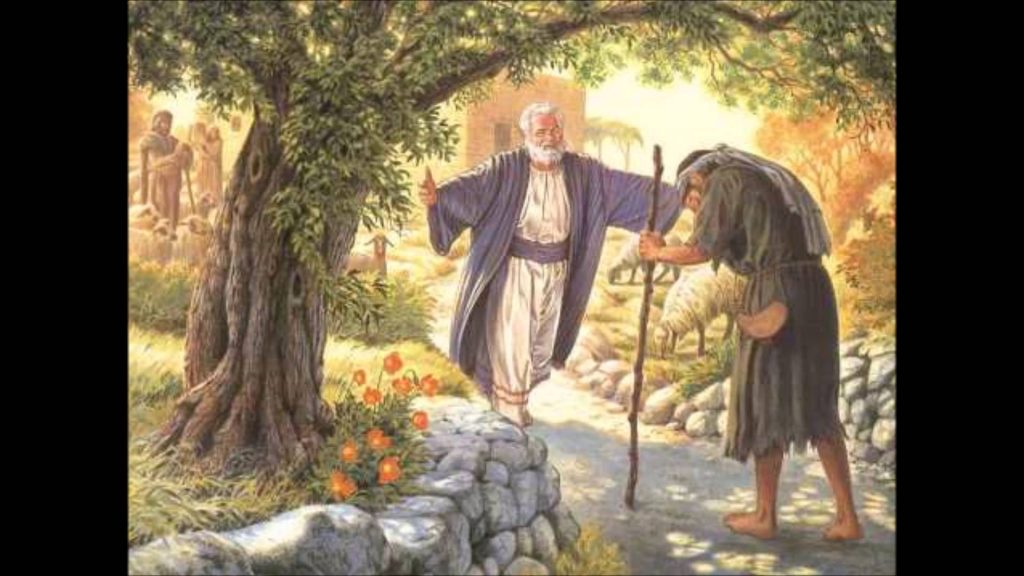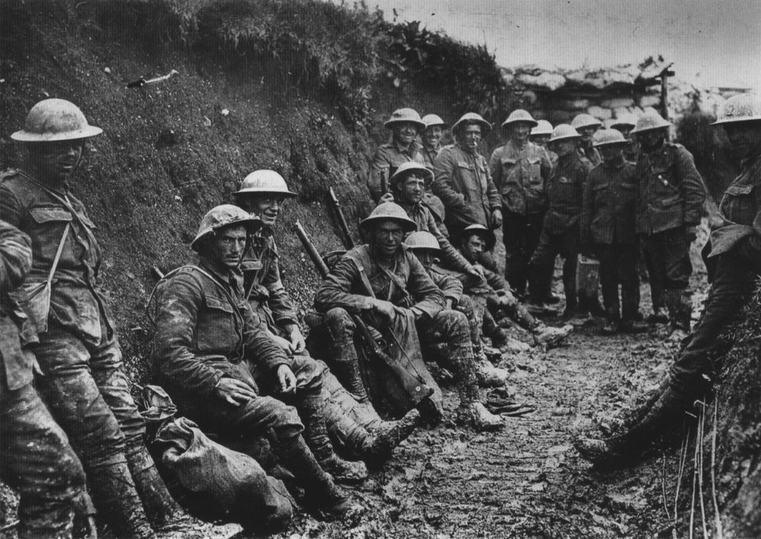Luke 15:11-32. And He said, A certain man had two sons: and the younger of them said to his father, Father, give me the portion of your goods that comes to me. And he divided unto them his substance. And not many days after, the younger son gathered every thing together, and journeyed into a far country, and there scattered his goods by riotous living. And when he had spent all, there arose a mighty famine in that land, and he began to be in want. And he went and joined himself to a citizen of that country, who sent him into his fields to feed swine. And he desired to fill his belly with the husks which the swine were eating: and no man gave unto him. And when he came to himself he said, How many hired servants of my father have bread in abundance, and 1 perish here with hunger. I will arise and go to my father, and will say unto him, Father, I have sinned against heaven, and before you, and am no more ‘worthy to be called your son: make me as one of your hired servants. And he arose and went to his father. And while He was yet a great way off, his father saw him, and his bowels yearned, and he ran and fell on his neck, and kissed him. And his son said unto him, My father, I have sinned against heaven and before you, and am no more worthy to be called your son. But his father said to his servants, Bring forth quickly the chief robe, and clothe him: and put a ring on his hand, and shoes on his feet. And bring the fatted calf, and kill it, and we will eat, and be merry: for this my son was dead, and is alive: and was lost, and is found. And they began to be merry.—-Now his elder son was in the field, and as he came and drew near to the house, he heard the sound of music and rejoicing. And he called one of the servants, and asked him what these things meant. And he said unto him, Your brother is come, and your father has killed the fatted calf, because he has received him sound. And he was angry, and would not go in: therefore came his father out, and besought him. But he answered and said to his father, Lo! all these years do I serve you, and never have transgressed your commandment, and you never gave me a kid, that I might make merry with my friends. But when this your son, who has, eaten up your wealth with harlots, is come, you have killed for him the fatted calf. And he said unto him, My son, you are ever with me: and all that is mine is yours. But it was fitting to make merry and be glad: for this your brother was dead, and is alive: and was lost, and is found.
 I HEAR one of the holy prophets trying to win unto repentance those who are far from God, and saying, “Return, O Israel, to the Lord your God: for you have become weak in your iniquity. Take with you words, and return to the Lord our God.” What sort of words then did he, under the influence of the Spirit, command them to take with them? Or were they not such as become those who wish to repent; such namely, as would appease God, Who is gentle, and loves mercy. For He even said by one of the holy prophets, “Return you returning children, and I will heal your breaches.” And yet again by the voice of Ezekiel, “Return you altogether from your wickednesses, O house of Israel. Cast away from you all your iniquities which you have committed, that they be not to you for a punishment of iniquity. For I have no pleasure in the death of the sinner, as that he should turn from his evil way and live.” And the same truth Christ here also teaches us, by this most beautifully composed parable, which I will now to the best of my ability endeavour to discuss, briefly gathering up its broad statements, and explaining and defending the ideas which it contains.
I HEAR one of the holy prophets trying to win unto repentance those who are far from God, and saying, “Return, O Israel, to the Lord your God: for you have become weak in your iniquity. Take with you words, and return to the Lord our God.” What sort of words then did he, under the influence of the Spirit, command them to take with them? Or were they not such as become those who wish to repent; such namely, as would appease God, Who is gentle, and loves mercy. For He even said by one of the holy prophets, “Return you returning children, and I will heal your breaches.” And yet again by the voice of Ezekiel, “Return you altogether from your wickednesses, O house of Israel. Cast away from you all your iniquities which you have committed, that they be not to you for a punishment of iniquity. For I have no pleasure in the death of the sinner, as that he should turn from his evil way and live.” And the same truth Christ here also teaches us, by this most beautifully composed parable, which I will now to the best of my ability endeavour to discuss, briefly gathering up its broad statements, and explaining and defending the ideas which it contains.
It is the opinion then of some, that by the two sons are signified the holy angels, and we the dwellers upon earth: and that the elder one, who lived soberly, represents the company of the holy angels, while the younger and profligate son is the human race. And there are some among us who give it a different explanation, arguing that by the elder and well conducted son is signified Israel after the flesh: while by the other, whose choice it was to live in the lust of pleasures, and who removed far from his father, is depicted the company of the Gentiles. With these explanations I do not agree: but I would have him who loves instruction, search after that which is true and unobjectionable. What then I say is as follows, “giving occasions to the wise, and to the just offering knowledge,” as Scripture commands: for they will examine for a fitting meaning the explanations proposed to them. If then we refer the upright son to the person of the holy angels, we do not find him speaking such words as become them, nor sharing their feelings towards repentant sinners, who turn from an impure life to that conduct which is worthy of admiration. For the Saviour of all and Lord says, that “there is joy in heaven before the holy angels over one sinner that repents.” But the son, who is described to us in the present parable as being acceptable unto his father, and leading a blameless life, is represented as being angry, and as even having proceeded so far in his unloving sentiments as to find fault with his father for his natural affection for him who was saved. “For he would not, it says, go into the house,” being vexed at the reception of the penitent almost before he had come to his senses, and because there had even been slain the calf in his honour, and his father had made for him a feast. But this, as I said, is at variance with the feelings of the holy angels: for they rejoice and praise God when they see the inhabitants of the earth being saved. For so when the Son submitted to be born in the flesh of a woman at Bethlehem, they carried the joyful news to the shepherds, saying, “Fear you not: for behold I bring you glad tidings of great joy that shall be to all the people, that there is born to you today in the city of David a Saviour Who is Christ the Lord.” And crowning with lauds and praises Him Who was born, they said, “Glory to God in the highest, and upon earth peace, and among men good-will.”
But if any one say, that Israel according to the flesh is meant by the virtuous and sober son, we are again prevented from assenting to this opinion by the fact, that in no way whatsoever is it fitting to say of Israel that he chose a blameless life. For throughout the whole of the inspired Scripture, so to say, we may see them accused of being rebels and disobedient. For they were told by the voice of Jeremiah, “What fault have your fathers found in Me, that they have wandered far from Me, and have gone after vanities, and become vain?” And in similar terms God somewhere spoke by the voice of Isaiah, “This people draws near unto Me; with their lips they honour Me, but their heart is very far from Me: but in vain do they fear Me, teaching as doctrines the commandments of men.” And how then can any one apply to those who are thus blamed the words used in the parable of the virtuous and sober son? For he said, “Lo! all these years do I serve you, and never have I transgressed your commandment.” But they would not have been blamed for their mode of life, had it not been that transgressing the divine commandments, they betook themselves to a careless and polluted mode of life.
And yet again,—-for I think it right to mention this also,—-some would refer to the person of our Saviour that fatted calf which the father killed when his son was called unto conversion. But how then could the virtuous son, who is described as wise and prudent, and constant in his duty, and whom some even refer to the person of the holy angels, treat it as a reason for anger and vexation that the calf was slain? For one can find no proof of the powers above being grieved when Christ endured death in the flesh, and, so to speak, was slain in our behalf. Rather they rejoiced, as I said, in seeing the world saved by His holy blood. And what reason too had the virtuous son for saying “you never gave me a kid.” For what blessing is wanting to the holy angels, inasmuch as the Lord of all has bestowed upon them with bounteous hand a plentiful supply of spiritual gifts? Or of what sacrifice stood they in need as regards their own state? For there was no necessity for the Emmanuel to suffer also in their behalf. But if any one imagine, as I have already said before, that the carnal Israel is meant by the virtuous and sober son, how can he say with truth “you never gave me a kid?” For whether we call it calf or kid, Christ is to be understood as the sacrifice offered for sin. But He was sacrificed, not for the Gentiles only, but that He might also redeem Israel, who by reason of his frequent transgression of the law had brought upon himself great blame. And the wise Paul bears witness to this, saying, “For this reason Jesus also, that He might sanctify the people by His blood, suffered outside the gate.”
What then is the object of the parable? Let us examine the occasion which led to it; for so we shall learn the truth. The blessed Luke therefore had himself said a little before of Christ the Saviour of us all, “And all the publicans and sinners drew near unto Him to hear Him. And the Pharisees and Scribes murmured saying, This man receives sinners and eats ” with them.” As therefore the Pharisees and Scribes made this outcry at His gentleness and love to man, and wickedly and impiously blamed Him for receiving and teaching men whose lives were impure, Christ very necessarily set before them the present parable, to show them clearly this very thing, that the God of all requires even him who is thoroughly steadfast, and firm, and who knows how to live holily, and has attained to the highest praise for sobriety of conduct, to be earnest in following His will, so that when any are called unto repentance, even if they be men highly blameable, he must rejoice rather, and not give way to an unloving vexation on their account.
For we also sometimes experience something of this sort. For some there are who live a perfectly honourable and consistent life, practising every kind of virtuous action, and abstaining from every thing disapproved by the law of God, and crowning themselves with perfect praises in the sight of God and of men: while another is perhaps weak and trodden down, and humbled unto every kind of wickedness, guilty of base deeds, loving impurity, given to covetousness, and stained with all evil. And yet such a one often in old age turns unto God, and asks the forgiveness of his former offences: he prays for mercy, and putting away from him his readiness to fall into sin, sets his affection on virtuous deeds. Or even perhaps when about to close his mortal life, he is admitted to divine baptism, and puts away his offences, God being merciful unto him. And perhaps sometimes persons are indignant at this, and even say, ‘This man, who has been guilty of such and such actions, and has spoken such and such words, has not paid unto the judge the retribution of his conduct, but has been counted worthy of a grace thus noble and admirable: he has been inscribed among the sons of God, and honoured with the glory of the saints.’ Such complaints men sometimes give utterance too from an empty narrowness of mind, not conforming to the purpose of the universal Father. For He greatly rejoices when He sees those who were lost obtaining salvation, and raises them up again to that which they were in the beginning, giving them the dress of freedom, and adorning them with the chief robe, and putting a ring upon their hand, even the orderly behaviour which is pleasing to God and suitable to the free.
It is our duty, therefore, to conform ourselves to that which God wills: for He heals those who are sick; He raises those who are fallen; He gives a helping hand to those who have stumbled; He brings back him who has wandered; He forms anew unto a praiseworthy and blameless life those who were wallowing in the mire of sin; He seeks those who were lost; He raises as from the dead those who had suffered the spiritual death. Let us also rejoice: let us, in company with the holy angels, praise Him as being good, and loving unto men; as gentle, and not remembering evil. For if such is our state of mind, Christ will receive us, by Whom and with Whom, to God the Father be praise and dominion with the Holy Spirit, for ever and ever, Amen










Currently reading John MacArthur’s A Tale of Two Sons, a book about the same parable. Really good exposition so far.